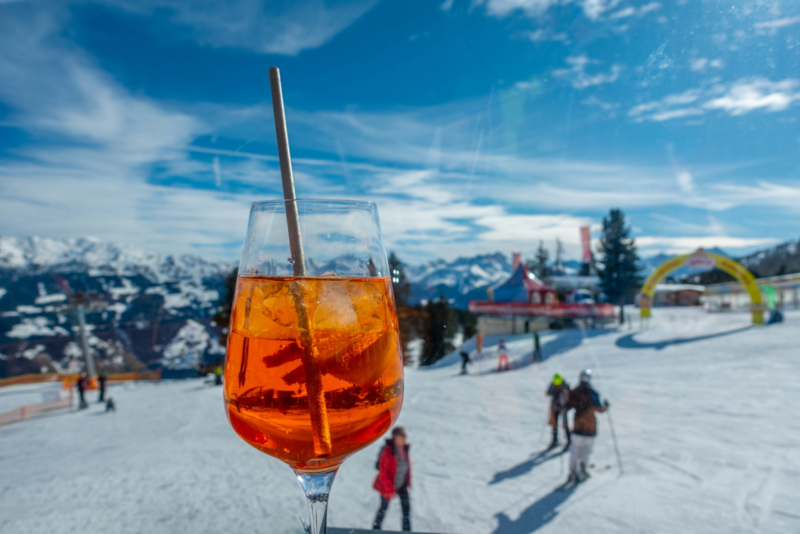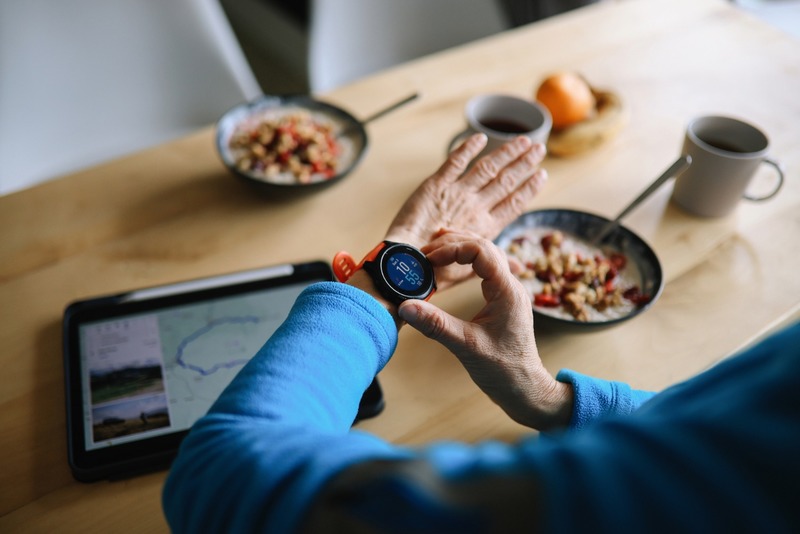News
The Skinny on Skincare
SKIN IT HOLDS IT ALL TOGETHER.
As the body's largest organ and the most exposed skin needs a little TLC if it's going to stay healthy for the long haul. And that's where Jean Liu Urquhart M.D. comes in. Both a board certified dermatologist and dermapathologist Dr. Urquhart works with Mountain Dermatology Specialists in Eagle and Vail. She looks at your skin and it tells her things about its sensitivities and inclinations she gets it under a microscope and it reveals even more. Most of her patients visit for annual skin cancer screenings but she also sees people for acne warts rashes and skincare regimens.
We have a few different elements we have to work with at high altitude when we're talking about skincare she said.
They go like this:
» Dryness
» Sun Exposure
» Cold Exposure
Any one of these elements deserves a response. Put them together and they demand one. You combine them and they can wreak havoc on your skin she said.
Luckily there's a fairly straightforward way to deal with the conditions.
Dryness is the number one thing that I talk about in the winter months she said. There are lots of things that can contribute to dryness.
She cites the low humidity rate as well as a love of hot water as major contributors. Soap can dry out the skin too. It strips the skin of natural oils and hydration Dr. Urquhart explained. I ask people to soap the face armpits groin and feet wash those areas. But leave it at that unless some other area demands special attention.
Though many people use lotion she says to kick it up a notch and find a moisturizing cream. The difference between lotions and creams comes down to the amount of water and oil they have in them. And don't think of moisture as something that only comes topically from the outside. Get ahead of the game by staying well hydrated on the inside. Water water water.
FACEOFF
Faces are a special case and need a little bit more care than the rest of your body. She recommends washing the face twice a day as well as moisturizing and protecting it (first with cream then with sunscreen).
But beyond that she has recommendations for those interested in combating or at least slowing down pre-cancerous change. Wrinkles sun spots dark areas
and dull skin aren't necessarily harbingers of ill health but still can be dealt with.
- Hyaluronic acid gels help seal in moisture especially when layered beneath a moisturizer.
- More specialized treatments such as microdermabrasion or chemical peels can accelerate the exfoliation process and ultimately provide more access to the benefits of moisturizers.
- Topical antioxidants bind the potentially damaging free radicals that are born when the sun hits the skin. They are meant to help neutralize the threat and might include ingredients such as Vitamin C Vitamin E green tea derivatives and niacinamide.
- Growth peptides are small proteins that stimulate collagen growth. They help with wrinkle reduction and improve the overall texture of the skin.
- Retinoids are Vitamin A derivatives that help prevent pre-cancerous change and can help alleviate fine wrinkles fade sunspots and reduce acne. Retinoids are the family name but they include such products as retinol tretinoin tazarotene and adapalene.
SUN PROTECTION
You didn't think you were going to get away without talking about sunscreen did you?
I give this spiel a lot every day Dr. Urquhart said laughing. Sun protection is very important to prevent some skin cancer and aging. Sun damage is caused by UV light and triggers advanced aging signs like brown spots and wrinkles.
Of course the best way to avoid the sun's effects is to avoid the sun period. But that's a little unrealistic. Do try to minimize exposure from 10 a.m. until 2 p.m. as that's when the UV index is highest. That's not always possible though. Who wants to start skiing at 3 p.m.? Instead opt for hats and long-sleeved shirts. In our climate and altitude use SPF 30 or higher and reapply every two hours she said.
And though SPF 60 might sound like the protection of SPF 30 doubled it's not.
The amount of protection is proportionally smaller she said. And keep in mind not all sunscreens are created equal. Dr. Urquhart recommends finding one with broad-spectrum UVA and UVB. Her preferred active ingredients are zinc oxide titanium dioxide avobenzone and Helioplex so find a sunscreen with at least one of those.
Take care of your skin and your skin will take care of you.
SKINCARE TIPS
You're in hot water!
Hot showers and soaks in the hot tub might be relaxing but they also dry out the skin. Dial back the hot water exposure a bit and you likely will see a difference in your skin's ability to stay moisturized.
Just visiting?
Dr. Urquhart says to scale back on your topical retinoid use. Try twice a week to avoid unnecessary dryness and mix a pea-sized dollop with a dime-sized amount of moisturizer.
The Doc recommends:
Moisturizing soaps such as Cetaphil Dove and Olay. Moisturizing creams such as Cetaphil and VaniCream.
More News
-
New!
More

First Chair to Last Call: What Does Alcohol Really Mean For Your Health?
In nearly every Colorado ski town, some iteration of the neon sign blares its play-hard-party-harder anthem. It’s a not-so-subtle nod to mountain party culture, a lifestyle that normalizes combining sports and outdoor adventures with heavy drinking and partying. In Eagle County, après culture, high-altitude living and outdoor performance have coexisted for as long as locals have been sliding on snow. But how much is too much at altitude? And what role do social support systems play in helping residents find balance?
-
New!
More

Counting More Than Steps: How Wearables Can Help (or Hinder) Your Health
From step counts to sleep stages, heart rate variability to blood sugar spikes, wearable devices are giving us a front-row seat to what’s happening inside our bodies. Strapped to wrists, slipped onto fingers or wrapped around our biceps, wearables like the Oura Ring or Whoop strap promise insight and advice in the quest for better health.
-
More

Cass Barham and Sarah Crabtree Honored As Recipients of Vail Health Elevate Award
Cass Barham and Sarah Crabtree, both lab techs at Vail Health Hospital, have been named recipients of the Vail Health Elevate Award. Vail Health created the Elevate Award in June 2022 to give patients and their families an opportunity to nominate and thank employees who have touched their lives in some way.
